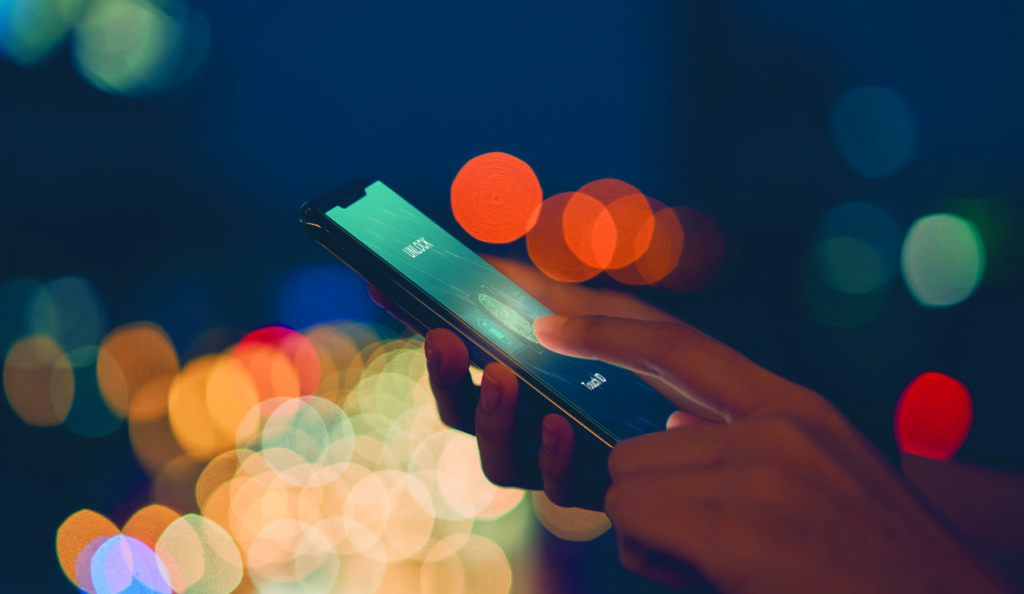[LUM#11] Prevention 2.0
Preventing suicide risk... with a cell phone. This is the project led by psychiatrist Philippe Courtet, who has teamed up with a group of computer scientists from Lirmm to develop the Emma app, designed to detect suicide risk.

With more than 9,000 deaths each year, France has one of the highest suicide rates in Europe. It is even the leading cause of death among 25-34 year olds. Globally, one person takes their own life every 40 seconds. This is a real public health issue and a challenge for psychiatrists faced with this thorny problem: how can we prevent the risk of suicide?
"We are powerless when it comes to predicting suicide risk," explains Philippe Courtet. A patient never commits suicide in front of their psychiatrist during a consultation. Until now, all we could do was diagnose the risk of suicide after the fact, when we see a patient and discuss with them the moments leading up to their act," emphasizes the head of the psychiatric emergency department at Montpellier University Hospital.
"Recollection bias"
There is one major obstacle: during this consultation, patients have little or no memory of these moments. To avoid this "recall bias" and better understand the context in which suicide occurs, specialists lacked a "constant monitoring tool to determine the risk of acting on suicidal thoughts in real time, " emphasizes Philippe Courtet.
To overcome this problem, the specialist came up with the Emma app, which stands for Ecological Mental Momentary Assessment. It is a necessary aid "to monitor the patient at a given moment, in their everyday life, in their everyday environment, and not just during a monthly consultation."
In practice, the app uses two types of assessment: passive and active. "Passive assessment analyzes how patients use their phones: calls, messages, social media, etc.," explain Jérôme Azé and Sandra Bringay from the Montpellier Laboratory of Computer Science, Robotics, and Microelectronics. Although the app does not know the content of the exchanges, simply knowing how a person uses their phone is a valuable indicator. "If we see that a patient starts using their phone all night long, or that they no longer contact their friends, or that they generally change their habits, it's an indicator that perhaps they are not doing well, " says the psychiatrist.
Valuable clues
For the active part of the assessment, Emma will directly engage with the user via "electronic interviews. " The app asks patients to answer questions such as "How are you feeling?", "Are you anxious?" and "Are you having dark thoughts?" If the answers suggest distress, the app triggers what is known as the intervention module. "This is a personalized safety plan that has been developed in advance with the patient and their psychiatrist," explains Philippe Courtet. The app then offers them access to a relaxation and stress management module developed by a doctor from the department. They can also listen to music or view photos or videos that have been selected in advance.
As a last resort, the app can suggest that the patient contact pre-selected loved ones. "With this system, we are harnessing the protective qualities of social connections to prevent suicide, " explains the specialist. Emma can also suggest that the patient call 911 or the VigilanS center, a "re-contact program" for people who have attempted suicide. "The goal of this safety plan is to delay the very short moment that can lead to a suicide attempt, " explains the psychiatrist.
Reach out
Initially, the app is being trialed on 100 patients, who are being monitored for six months. This phase allows the team to test how patients use Emma, but also aims to collect as much data as possible, which will be used by Jérôme Azé and Sandra Bringay's team to create an algorithm to refine the app's functionality. "We are using artificial intelligence, and more specifically deep learning, to try to build the most accurate suicide risk prediction algorithm possible, which will be used in a second version of the app, " explain the computer scientists.
Supported by the FondaMental foundation, this project has already proven its worth. "The initial feedback has been positive," explains Philippe Courtet. "Patients report that the fact that the app suggests calling a loved one has made them realize that people care about them. With Emma, we offer to reach out to people rather than waiting for them to reach out to us."
Find UM podcasts now available on your favorite platform (Spotify, Deezer, Apple Podcasts, Amazon Music, etc.).